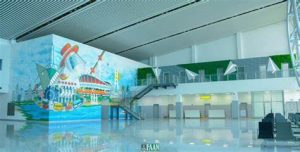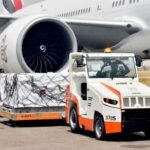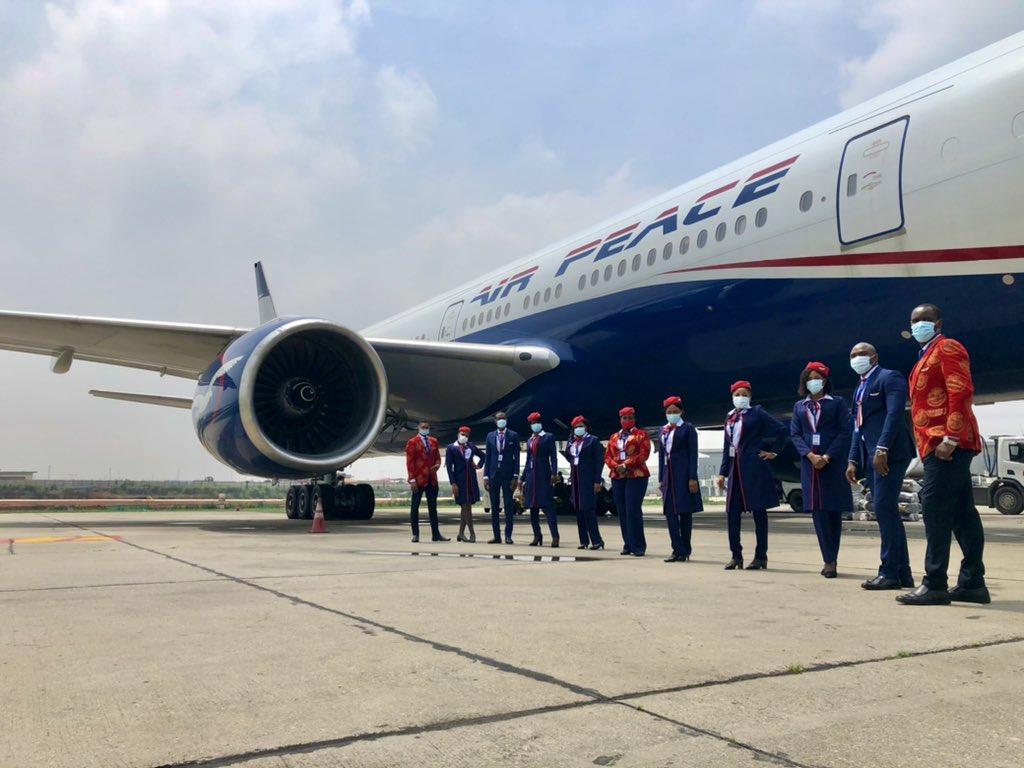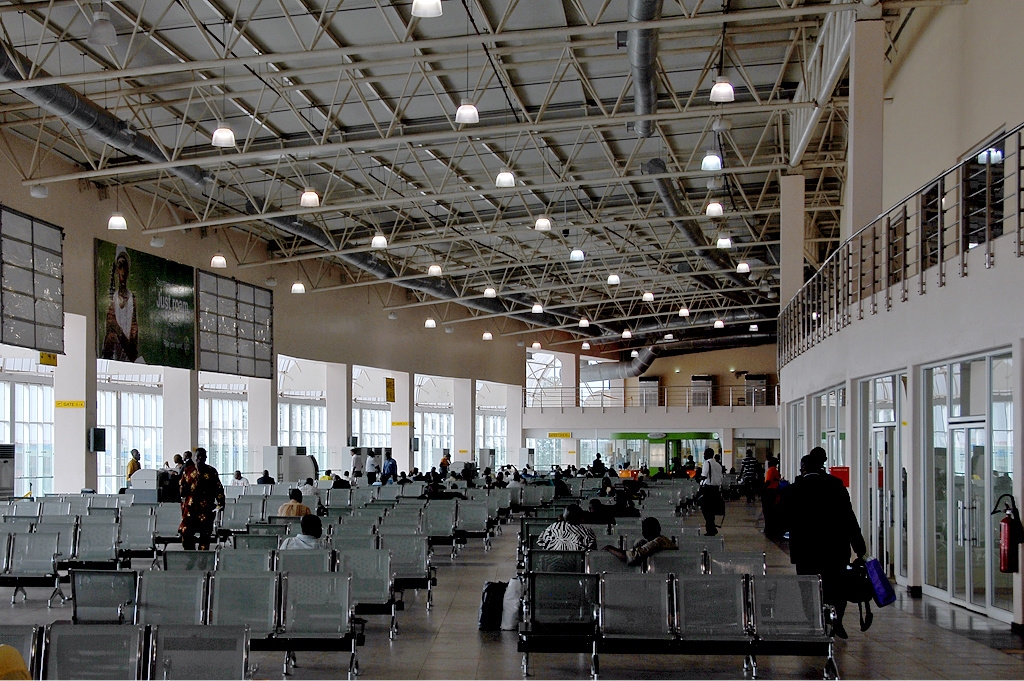
In order to meet international standards and recommended practices, the Federal Airports Authority of Nigeria has acquired security equipment to further secure the nation’s airports.
Aviation security experts have posited at different fora that what is key about staying ahead of those who may want to compromise airport security is to always update the security system with state-of-the-art equipment, noting that equipment and trained personnel are very critical in establishing reliable security architecture at airports.
Recently, the former Director General of the Nigeria Civil Aviation Authority (NCAA), Dr. Harold Demuren, warned that the outlaws who may want to invade airports are always planning, devising new ways to erode airport security. He therefore called on concerned authorities to always remain ahead of the curve in order to protect lives and property at the airports.
ICAO Standards
This explained why the International Civil Aviation Organisation (ICAO), keep member countries on their toes, insisting that they must maintain high standard of security to earn its approval, hence the regular audit of airport security by the global body.
Over the years, existing security equipment has become obsolete; making international airlines to doubt the efficacy of such equipment. This and other factors prompted the Minister of Aviation and Aerospace development, Festus Keyamo and the Managing Director of the Federal Airports Authority of Nigeria (FAAN), Mrs. Olubunmi Kuku, to embark of the transformation of security equipment at the airports, especially the major international airports in the country.
Since the beginning of the Tinubu administration, FAAN has engaged in fortifying the security apparatus at the airports by replacing old equipment with the new and also reorganising the security system for more positive results.
Some of the equipment include: state-of-the-art Rapiscan Orion 928DX, a sophisticated screening machine installed at the entrance of the new international terminal of the Murtala Muhammed Airport, Lagos. It is spectrum 4-colour imaging machine, which can exhibit images in the Classic 4-color and the new proprietary Spectrum 4-color (SP4) option providing superior image, allowing improved security by quick and accurate identification of threats and increase in throughput.
The equipmentis designed to detect a wide range of explosives and narcotics respectively in real time during the scanning process by marking a potential threat on the X-ray image. Rapiscan Systems detection algorithms are based on regulatory approved material analysis techniques.
Reinforcing Passenger Protection
FAAN’s Director of Aviation Security Services, (DASS), Albert Igbafe
Afegbe, explained that the equipment has a lot of features that when compared to the old screening machines it replaced, “you realise it is way, way, far better than what we have been using.”
“I am going to explain the features for you to know what this machine can do. So, the first thing I am going to talk about is the Spectrum 4 colour imaging, the SP4, which this machine has. Trying to compare with the old machine we have is like comparing analogue television with digital crystal clear television we have now. That is what you use to compare this with the old machine. So, the SP4 that I am talking about has the ability to be able to identify potential threats with clear vision.
Visual data is clear and it is fast. As the bag is being screened, it is being scanned, it is constantly taking notes of whenever you have like an illicit substance. It detects fast, quickly.
“You are able to see that with the colour image, you know what you are looking at, which has already been specified on the system. Now, it also has the ability to detect narcotics and explosives, which is rare in all the machines at the same time, real time. It is like having a chemistry inside the system that detects the drugs, the narcotics immediately, picks it immediately, and then gives you that image with the SP4 that I have already explained to you. That is what the system is capable of doing. Simultaneously, at the same time, not like some machines will detect narcotics, they will not detect, but this does that. One of the features of this machine is that it also has the ability to absorb advanced technology, unlike the recent machines. If there is any improved technology, it can be upgraded,” Afegbe explained.
“Most of the equipment that have been installed at the Murtala Muhamemd International Airport, Lagos and the Nnamdi Azikiwe International Airport, Abuja, have the dual-mode auto-set, which enables the Aviation Security (AVSEC) to detect organic materials.
“If the system is programmed, it has this intensive algorithm to detect where you have material. It does that in two different modes, the range mode and the interactive mode. The range mode, you are able to pick it, and then you specify it on the system.
“When someone is traveling with more than what you are supposed to travel, organic material, like an agricultural product you want to travel with, it is able to detect that. You can pick a pixel and then you interact with it. You tell it, okay, fingerprints, wherever you have discovered this thing, and then it does that as quickly as possible. That is what this system does. It has the ability to detect currency, too. When you have more than enough, it detects that, too,” he further said.
E-gate
Afegbe spoke about the installation of E-gates at the Lagos airport and how travellers now undergo biometric verification using facial or iris recognition, fingerprints, or a combination of modalities. “After the identification process is completed and the passport holder’s identity is verified, a physical barrier such as a gate or turnstile opens to permit passage. If the passport holder’s identification is not verified or if the system malfunctions, then the gate or turnstile does not open
“So, we are trying to introduce this e-gate method where it will be seamless for passengers when they are travelling, or when they are arriving. This is the e-gate which is under the test run. Here, nobody needs to have physical contact with you. You just take your boarding pass, scan it and it will open. Without the boarding pass, you can’t pass through here. So, it stops this touting and all that,” Afegbe said.
Eliminating Extortion
According to experts, in addition to many advantages, it will help to further reduce interpersonal and physical interaction between airport security officials and passengers, which will put to an end alleged extortion of passengers by officials.
Igbafe said with the completion of the installation of all the screening machines and the monitors, each security agency would have its own monitors and the tables would be put away permanently.
“The tables (for physical screening of passenger’s bags) you see will be a thing of the past, you will not see any table here. There will be no physical contact, because what we are also doing is that when we fix those monitors and the machines dictate unaccepted objects, the concerned officials will take the passenger and his or her baggage to designated areas for physical checks.
“The designated areas will also have CCTV cameras. This is to ensure the passengers are not being exploited. When the machines dictate something, the Aviation Security (AVSEC) call the relevant agencies such as National Drug Law Enforcement Agency (NDLEA), Customs, Quarantine, amongst others to follow up,” Afegbe explained.
Before now security operatives had defended the screening tables at the international airport, Lagos, saying that the physical screening was necessary because the equipment available them was not able to identify some prohibited goods and objects. But with the acquisition of the latest Rapiscan equipment, that argument was not more tenable.
“They complained that the machines we were using before could not detect, what they were looking for. But now, the ones we have now can detect what they are looking for. That is why they are now going to sit by the monitor and be screening the baggage through the monitor. If they suspect that your bag is having contraband, they will take you to a corner for further search,” he said.
Securing the Bags
FAAN has also installed modern equipment for the screening of bags before they are taken to the aircraft. The bag starts its screening journey from the entrance of the terminal to check in desk, where the checked in bag is taken to the central baggage area, where the bag is again thoroughly screened before it is loaded into the aircraft.
“This is the baggage area, where all items that are going into the plane are finally screened. This is where all the checked in bags come to. And as you can see, these are handling company officers. And they are sorting them according to the airline and according to time. The machines here have been installed to check for the same items that have been seen in front of the terminal. Currency, narcotics, organic material, whatever it is. We are showing all this to just demonstrate to the world that MMIA is extremely secure. Why? The management is investing a lot of resources and putting technology in place to ensure that, first of all, that our passengers are safe and secure.
“Secondly, we maintain our standing with ICAO. This is a CAT 3 airport, so we are doing all this to ensure that we continue to uphold the standard, because this is our premier airport. According to a report recently, this is the airport that generates around 67 to 70 per cent of the revenue of all the airports in the country. So, we take the issues of this airport very, very seriously. As I was telling somebody, within the time that Mrs. Kuku became the Managing Director of FAAN, and today, more than 300 CCTV cameras have been deployed. And we are expanding that network to cover the blind spots. In the near future, there will be very, very few areas not so covered,” said the Special Adviser, Media to the Managing Director of FAAN, Gbenga Olorunponmi.

He also disclosed that the transformation is happening at all the international airports.
Cargo Security Equipment
At the Cargo terminal of Lagos airport, FAAN has also acquired modern security equipment for the screening of cargo taken to various parts of the world in line with ICAO standards. In fact, some airlines insist that the cargo they will airlift must be subjected to stiffer screening process to ensure that no incendiary or other prohibited objects accompany the cargo.
FAAN’s head of security at the Nigerian Aviation Handling Company (NAHCO) Plc Warehouse, Tunde Olowoyeye, disclosed that the agency installed modern screening equipment for cargo called Rapiscan Itemizer 5X, which uses optimised detection libraries and advanced software algorithms, making it the ideal solution for detecting trace amounts of explosive and narcotic threats.
“So, what we have now is the Itemizer 5X. Unlike the older version we used to have before, this one makes our work a lot easier. Now, like they say, it is ETD (Explosive Trace Detector). It is able to detect any trace of explosive in every shipment that is going outside this place. The safety and the security of all our shipment is now guaranteed. It has always been guaranteed, but we need to get a better machine that is latest. And that is what the Itemizer 5X is all about. It is able to trace any explosive, making every shipment that is going on board the aircraft safe and good to fly,” he stated.
He also explained that US based carrier, Delta Air Lines had insisted that the agency deployed the latest security equipment for the cargo warehouse, “and FAAN listened and acquired the equipment and installed it. That was after Transportation Security Administration (TSA) of the US came to audit the cargo terminal and recommended the latest equipment.”
“We needed to upgrade to the latest Itemizer machine. When Delta came, TSA actually came, they said, for now, we should not use those old machines for the cargo until we get the latest ETD machine. And that was what we did. And they have come, they have looked at it, they said they are good to go. And so, we have been using it,” Olowoyeye said.
FAAN in the last two years has brought many changes in many areas of the airport; from upgrading facilities at various airports in the country under its management, to rehabilitating the runways and installing airfield lighting. The changes are prompted by the desire of the management to serve travellers better and make facilitation easy for airlines.






